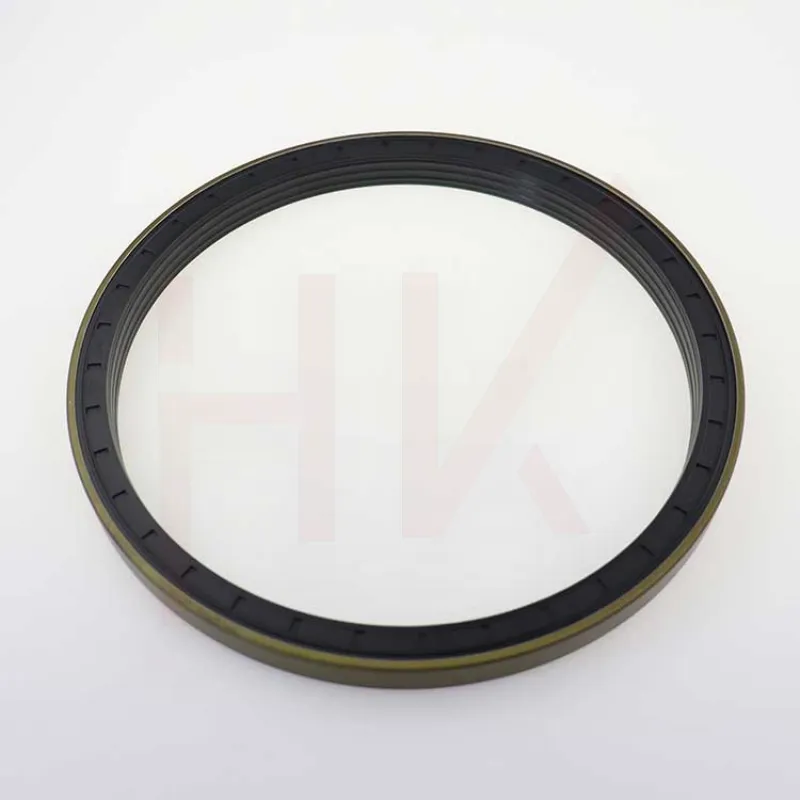Aug . 06, 2024 14:29 Back to list
Understanding the Material Composition of Hydraulic Cylinder Seal Kits for Optimal Performance
The Importance of Hydraulic Cylinder Seal Kit Materials
Hydraulic systems are critical components in various machinery and applications, from heavy construction equipment to automotive systems. At the heart of these systems lies the hydraulic cylinder, which converts hydraulic energy into mechanical force. However, the efficiency and reliability of these hydraulic cylinders largely depend on their sealing mechanisms. This is where hydraulic cylinder seal kits come into play. Choosing the right materials for these seal kits is essential for optimal performance and longevity.
Understanding Hydraulic Cylinder Seal Kits
A hydraulic cylinder seal kit typically contains various seals, O-rings, and backups designed to prevent fluid leakage and contamination. These components ensure that the hydraulic fluid remains within the cylinder, allowing for the efficient transfer of power. Over time, seals can wear down due to factors such as temperature fluctuations, pressure changes, and chemical exposure. Therefore, using the right materials in the seal kit is crucial to withstand these challenges.
Common Materials Used in Seal Kits
1. Nitrile (Buna-N) Rubber This is one of the most common materials used in hydraulic seals. It offers excellent resistance to oils and fuels, making it suitable for various hydraulic applications. Nitrile rubber can withstand temperatures between -20°F to 250°F (-29°C to 121°C), which is adequate for many industrial settings.
2. Polyurethane Known for its durability and abrasion resistance, polyurethane is an excellent choice for applications involving high pressure and dynamic movement. It can maintain its integrity in extreme operating conditions and offers superior wear resistance compared to traditional rubbers.
3. Fluoroelastomers (Viton) For environments that involve exposure to high temperatures and aggressive chemicals, fluoroelastomers are often the material of choice. They can withstand temperatures ranging from -20°F to 400°F (-29°C to 204°C) and are resistant to a wide range of chemicals. This makes Viton seals particularly useful in industries such as aerospace and chemical processing.
4. PTFE (Teflon) Teflon seals are known for their low friction properties and excellent chemical resistance. They are often used in applications where low drag and minimal wear are essential. PTFE seals work well at extreme temperatures, both low and high, making them versatile for various applications.
hydraulic cylinder seal kit material

5. Silicone Silicone seals are predominantly used in applications with temperature extremes, particularly in lower-temperature environments. They can operate at temperatures up to 500°F (260°C) but are not suitable for use with petroleum oils.
Factors Influencing Material Selection
When selecting materials for hydraulic cylinder seal kits, several factors must be taken into consideration
- Operating Temperature Different materials have varying temperature tolerances. It’s critical to choose a material that can handle the maximum operating temperature of the system.
- Fluid Compatibility The sealing material must be compatible with the hydraulic fluid being used to prevent chemical degradation and ensure a long service life.
- Pressure and Movement The application’s specific pressure conditions and movement dynamics will influence the seal design and material choice. For instance, dynamic seals may require more resilient materials compared to static seals.
- Environmental Considerations Exposure to elements such as water, dirt, or extreme environmental conditions can impact seal longevity. Selecting materials with better resistance to these factors can enhance the reliability of the hydraulic system.
Conclusion
In conclusion, the performance and durability of hydraulic cylinders depend significantly on the materials used in seal kits. By understanding the various materials available and the specific requirements of the application, users can choose appropriate seals that ensure efficient operation and extend the lifespan of hydraulic systems. Investing in high-quality seal kits made from suitable materials ultimately leads to reduced maintenance costs and improved equipment reliability.
-
TCN Oil Seal Metal Ring Reinforcement for Heavy Machinery
NewsJul.25,2025
-
Rotary Lip Seal Spring-Loaded Design for High-Speed Applications
NewsJul.25,2025
-
Hydraulic Cylinder Seals Polyurethane Material for High-Impact Jobs
NewsJul.25,2025
-
High Pressure Oil Seal Polyurethane Coating Wear Resistance
NewsJul.25,2025
-
Dust Proof Seal Double Lip Design for Construction Equipment
NewsJul.25,2025
-
Hub Seal Polyurethane Wear Resistance in Agricultural Vehicles
NewsJul.25,2025
-
The Trans-formative Journey of Wheel Hub Oil Seals
NewsJun.06,2025
Products categories
















